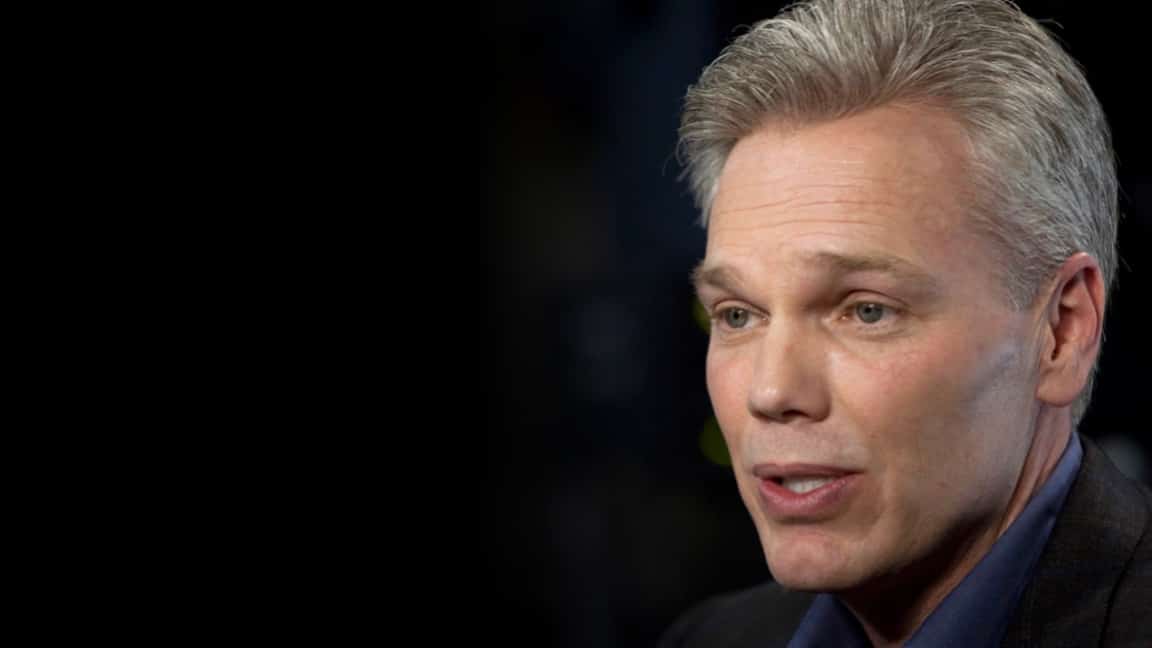Let’s face it; we all fail from time to time. But how come some people seem to “fail forward” even when times are tough? Brad D. Smith has a unique perspective.
During one of the most turbulent times in Silicon Valley history, Brad D. Smith was the steady-handed, innovative, and always resilient President and CEO of Intuit (NASDAQ: INTU). During his decade long tenure, the stock price skyrocketed nearly 10X. He’s currently a philanthropist, a highly sought-after advisor to up-and-coming leaders and Board Chair of Intuit and another iconic American brand, Nordstrom.
In his authentic, humble, and vulnerable style, Brad was kind enough to share with us his story.
After watching Brad’s interview, our team of CEOs, professors, and leadership experts would love to hear your story—particularly if you’re still in school and have dreams of becoming a better leader. As part of our effort to help future leaders, we will read and post all of your comments and share candid feedback and advice.
Let’s cut to the chase. According to Smith–failing forward—or as others would call it resilience or grit, starts with a clear sense of personal values. To Smith, these values are everything—they’re the guiding light, a North Star if you will, that helps him keep his perspective and balance, even when times are turbulent and unpredictable. Unlike the real North Star with a fixed point in the heavens, individuals need to create their own North Star through deep reflection on personal life experiences. And they need to be able to tell their story confidently.
Personal values aren’t inherited, nor do they magically appear. They emerge and crystallize from crucible experiences in life. We borrow the name ‘crucible’ from the vessels medieval alchemists used in their pursuit of turning worthless metals into gold. Crucibles were intentionally heated to scalding hot temperatures. Metaphorically, crucible experiences are often hot, intense, unexpected, and sometimes even traumatic.
People should systematically think about their crucible experiences. Reflection provides important clues about what matters—our core values. Once internalized, these values help us become stronger, self-aware, and comfortable in our skin.
The best leaders know how to articulate their core values clearly, how they were shaped, and why they matter. Most people can’t do it, and they ramble incoherently. Go ahead and try. But any aspiring leader should go through this exercise until they become comfortable. Lots of practice is required, but it will pay off 100X throughout a career.
In this video interview, Brad Smith shares three seminal events in his life that shaped his core values. All of them came very early in his life.
- When Brad was still a kid growing up near Kenova, West Virginia, a plane crash killed the entire Marshall University, football team. You may remember the movie based on this event, called “We Are Marshall,” starring Matthew McConaughey. In response to this tragedy, the community rallied in support and forged tight bonds. Smith realized at that moment that life is a team sport. The only way to achieve greatness is by leaning on the people next to you.
- In the fourth grade, Brad had a huge crush on a little red-headed girl. She beat Brad in the annual spelling bee. Making matters worse, she berated Brad and told him he couldn’t be her boyfriend because he was too stupid. “Well, my intelligence didn’t increase after that terrifying episode, but my work ethic did,” Brad told us. “I have come to appreciate that intelligence is just applied effort—grit will beat IQ any day.”
- As a youngster, Brad was bullied in school. Finally, he stood up to his oppressors but lost the fight. When he came home and told his father, he was naturally ashamed. But his father was proud and told him that “courage is the willingness to stand up to the things that scare you most—and that’s exactly what you did.” Feeling energized and with his dad’s blessing, Brad signed up for Karate lessons. Not long after, Brad became a second-degree black belt. This experience taught him to stand up to the things that scare him most and be a champion for those who don’t have a voice. He knew what it felt like to be a victim and be persecuted. He feels a deep sense of empathy when he sees it happening to others and refuses to stand by idly.
Everyone needs to find meaning in life experiences. We would love to hear your story. How did early life, crucible experiences shape your core values? What do these values mean to you? How do they guide your decision making and behaviors? This is an essential first step to learning how to fail forward. It is also the hallmark of every single great leader I have ever met in the past 20 years—especially Brad D. Smith.
*This interview is presented by CEO Fellows in partnership with N2Growth- Request to join our exclusive leadership forum and have conversations with our Culture Champions, here. We invite you to share your story and get feedback from iconic leaders like Brad Smith, executive advisors, top leadership professors, and gifted students from around the world.







